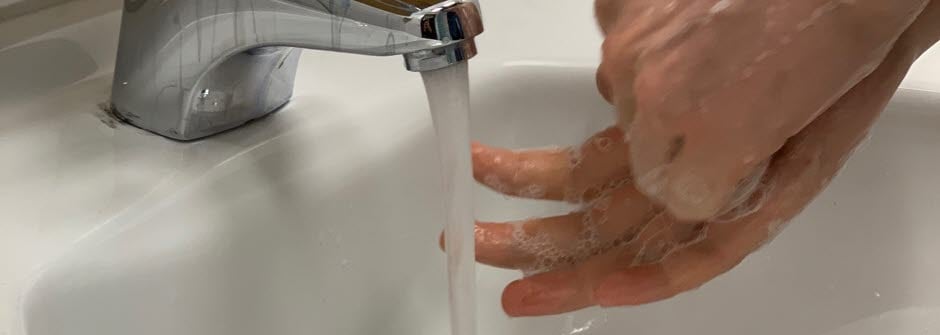- What is Cognitive Behavioral Therapy (CBT)?
- Internet treatment step by step
- Depression
- Body dysmorphic disorder (BDD)
- Health anxiety
- Irritable Bowel Syndrome (IBS)
- Generalized anxiety disorder (GAD, the ORIGAMI-study)
- Panic disorder
- Social anxiety disorder
- Sleeping problems (insomnia)
- Obsessive-compulsive disorder (OCD)
- Behandling
- Current page: Obsessive-compulsive disorder (OCD)
What is obsessive-compulsive disorder (OCD)?
Please note that the Internet-based treatment described on this website is conducted in Swedish and only available to people registered and living in Sweden.

Do you experience unwanted and intrusive thoughts? Do you feel the need to check things, wash excessively or do other behaviors repeatedly? If this occurs time after time and leads to negative consequences, it may be a sign of obsessive-compulsive disorder (OCD).
How it feels
Someone with OCD has intrusive thoughts (called obsessions) that causes anxiety or discomfort. The obsessive thoughts may be a fear of causing a fire or getting a disease, or about feeling the need to organize things in a certain way. It is also common to have intrusive thoughts about moral and religion, or to have taboo thoughts about sexuality or harming others. To get rid of the anxiety or discomfort that the obsessions provoke, it is common to engage in different behaviors (called compulsions). Common compulsive behaviors are to check the stove over and over again, wash repeatedly or put things in order. People who has OCD normally experience a strong discomfort in situations where the obsessions are present.
Typical symptoms
- Recurring and insistent thoughts/impulses (obsessions) that provoke anxiety and cause suffering.
- Attempts to ignore or push the obsessions away, or to control them with thoughts or actions.
- The fear of the obsessions is exaggerated.
- Behaviors (e.g. washing hands, arranging things, checking) or mental actions (e.g. pray, count, repeat a certain sentence quietly) that the person feels forced to do because of a compulsion or a rule that strictly must be followed.
- Behaviors are done to reduce anxiety or to prevent something bad from happening. The obsessions and compulsions cause significant distress, are time consuming or cause impairment in social, occupational, or other important areas of functioning.
Consequences
OCD often leads to limitations in everyday life. It is also common to feel depressed because of the impact OCD can have over one’s life. Family and friends can be involved in the obsessions and compulsions, and these relationships can be negatively affected. Without treatment it is hard to break the negative spiral caused by the OCD.
Occurrence
Approximately 2% of the adult population have OCD. This means that up to 200 000 people in Sweden have OCD.
Treatment
If you think that you have OCD, we recommend that you seek help through the health care service where you live.
Please notice
The Internet-based treatment described on this website is conducted in Swedish and is only available to people registered and living in Sweden.
Oskar Flygare